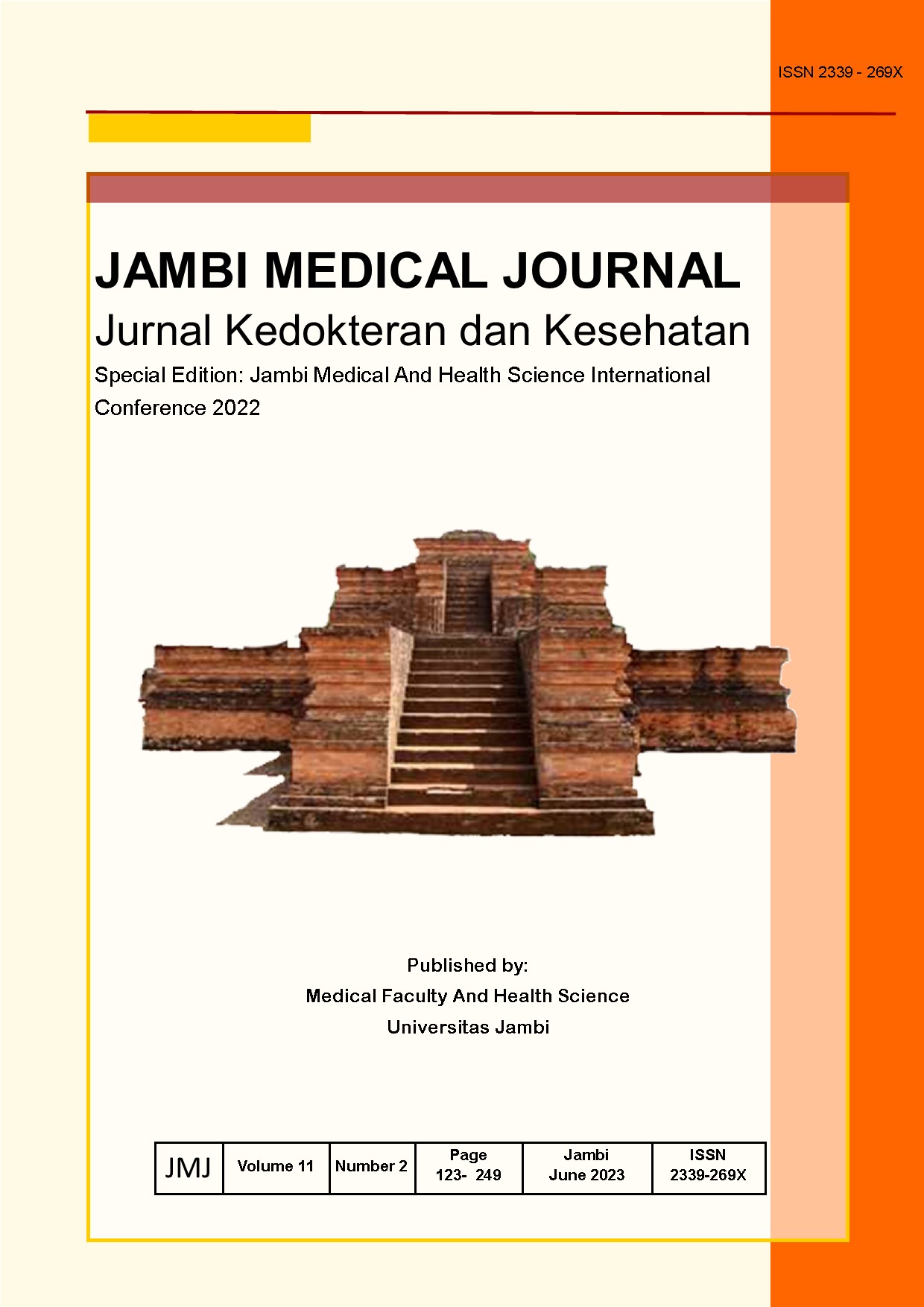THE EFFECT OF KARAMUNTING (Rhodomyrtus tomentosa) LEAVES ETHANOLIC EXTRACT ON SPERMATOZOA CONCENTRATION OF RATS INDUCED HIGH-FAT DIET
DOI:
https://doi.org/10.22437/jmj.v11i2.25128Abstract
The side effects of medication, especially cholesterol-lowering drugs, make people choose to use traditional medicine. The active compounds in karamunting (Rhodomyrtus tomentosa) leaves are believed to have the potential as antioxidants to overcome hypercholesterolemia and the effects of diseases related to male fertility. This study aimed to determine the effect of ethanol extract of karamunting leaves on the spermatozoa concentration of male Wistar rats (Rattus norvegicus) given different extract doses compared to controls induced by a high-fat diet. This research is an observational analytic study. The karamunting leaves extract was obtained from maceration with 70% ethanol and evaporated with a rotary evaporator. There were 15 videos of male rats spermatozoa divided into three groups: the control group received 5% Na-CMC, treatment group 1 (P1) received karamunting leaves extract 400 mg/kgBW, and treatment group 2 (P2) received karamunting leaves extract 800 mg/kgBW administered orally for 30 days. Previously, rats were induced with a high-fat diet for 30 days. Spermatozoa concentration was calculated using the counting chamber method, observed on the recorded video media. There was no significant difference in the concentration of spermatozoa (p>0.05) and relative testicular weight (p>0.05) in the P1 and P2 extract dose groups compared to the control group. The ethanol extract of karamunting leaves did not affect the concentration of rat spermatozoa induced by a high-fat diet.











